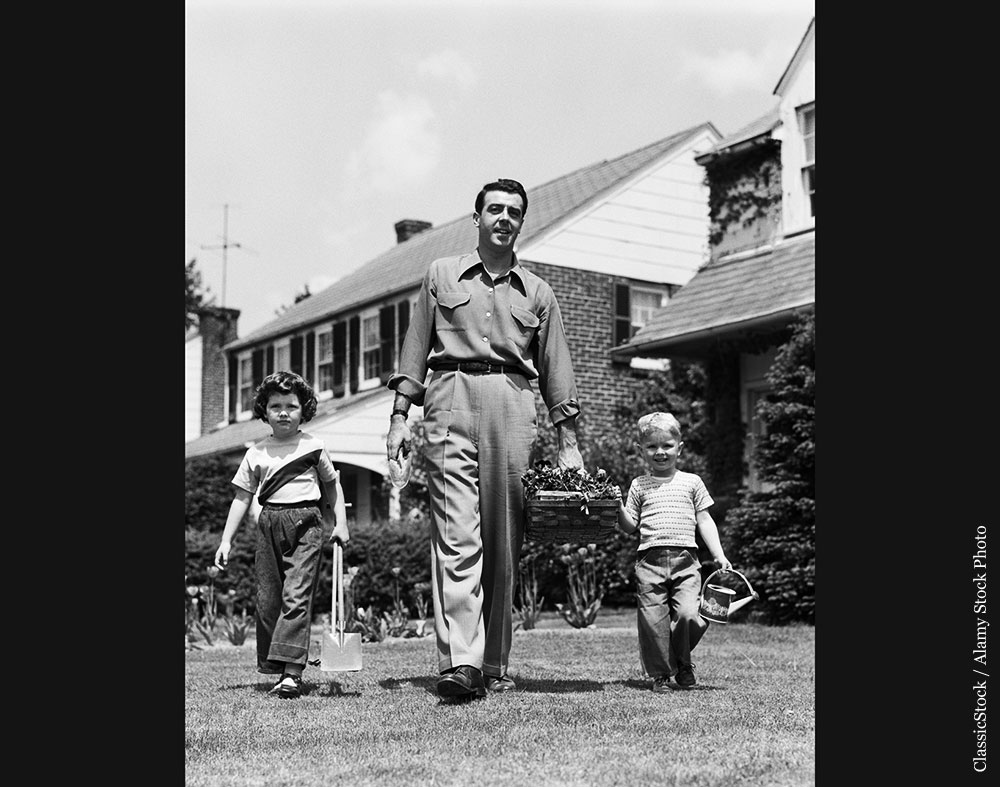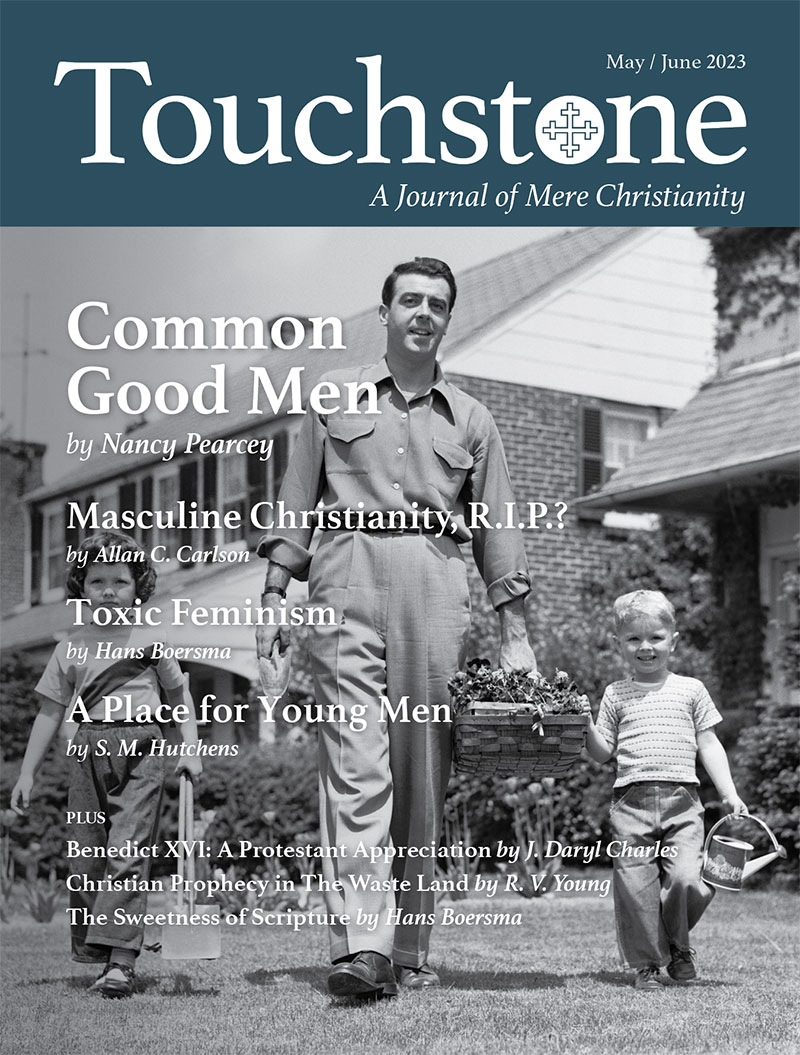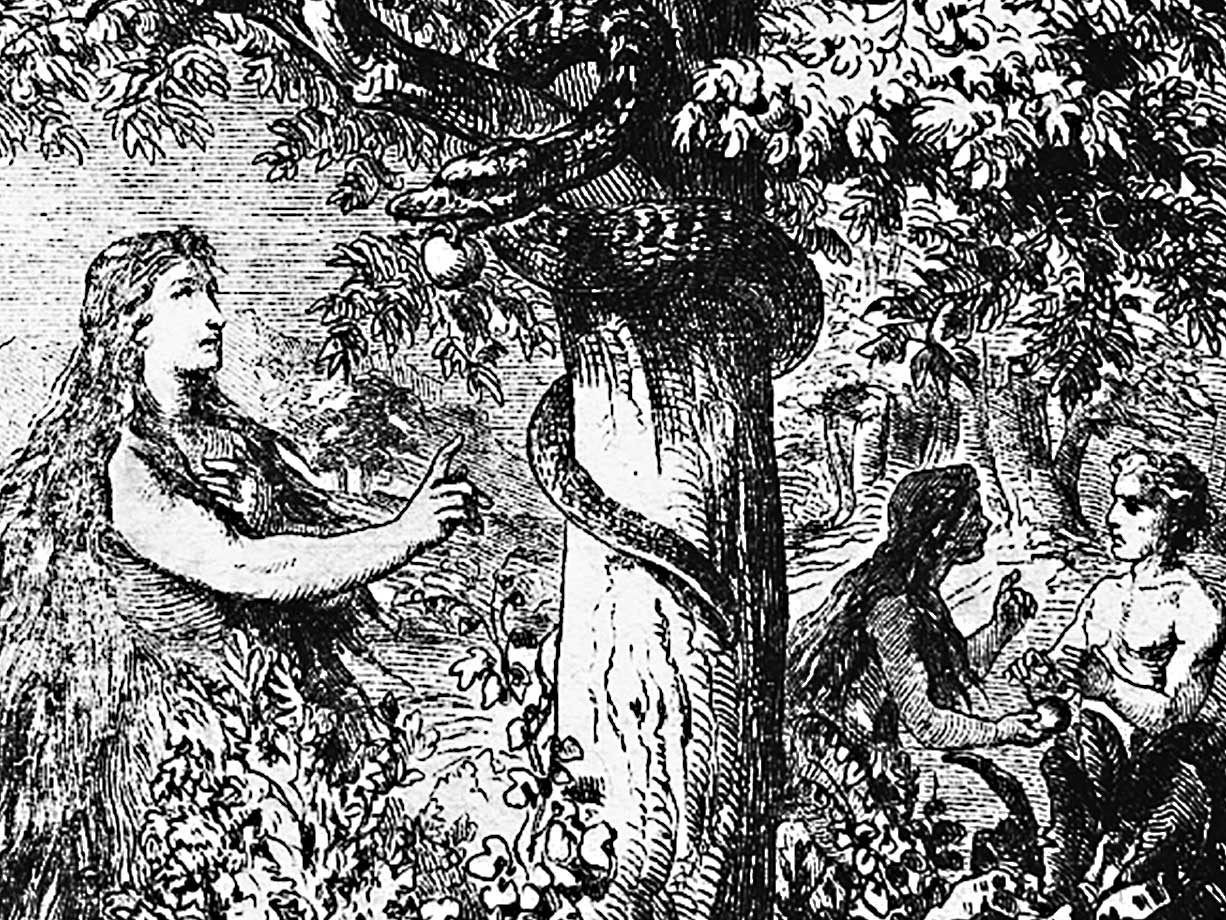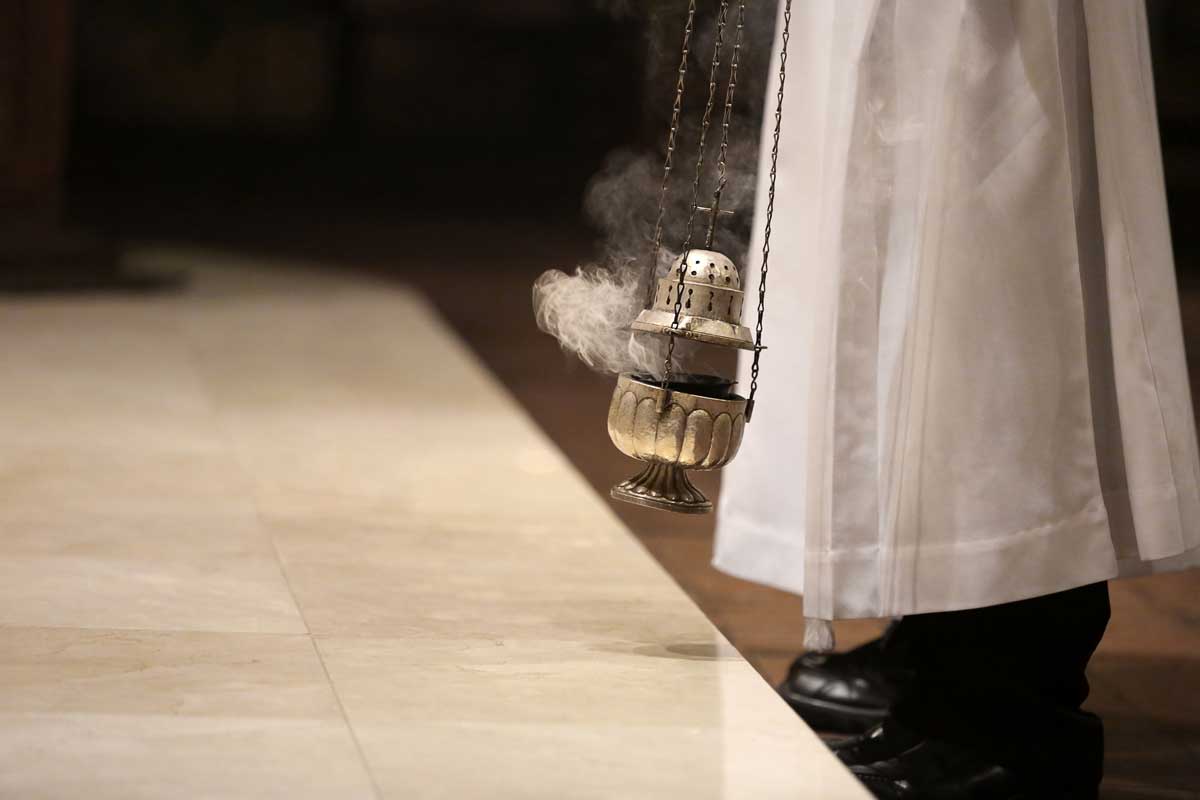Common Good Men
The Lost Authority of Godly Men
It’s no secret that the public rhetoric against men has grown increasingly harsh and bitter. Even some men have taken to maligning their own sex: “Women Have a Right to Hate Men,” wrote blogger Anthony James Williams. “Talking about ‘healthy masculinity’ is like talking about ‘healthy cancer,’” said John Stoltenberg, author of Refusing to Be a Man. “Testosterone is the problem. . . . Women should be in charge of everything,” tweeted the bestselling science fiction writer Hugh Howey. Testosterone is “a toxin that you have to slowly work out of your system,” said James Cameron, director of the movie Avatar.
The negative rhetoric is causing younger men to feel especially defensive and defeated. In the Wall Street Journal, Erica Komisar writes, “In my practice as a psychotherapist, I’ve seen an increase of depression in young men who feel emasculated in a society that is hostile to masculinity.” A survey of male teens and young adults found that a full 50 percent agree with the statement, “Feminism has gone too far and makes it harder for men to succeed.”
How can Christians create a balanced view that stands against the outright male-bashing that is so common, yet also holds men responsible to a higher standard? To answer that question, we need to dig into the history of the idea that masculinity is toxic. It turns out that its roots go back much further than you might think. We will be able to counter it effectively only if we ask where it came from and how it developed.
Man of the House
Through most of human history, most people lived on family farms or in peasant villages—including the colonial era here in America. Productive work was done in the home or its outbuildings. As a result, work was not a matter of the father’s job; it was the family industry. A household was a semi-independent economic unit, often including members of the extended family, apprentices, servants, hired hands, and (mostly in the South) slaves. Often the living quarters were in one part of the house, with offices, workshops, or stores in another part of the same house.
The fact that economically productive work was performed in the home meant that both parents could be involved in rearing children. Women were responsible for a wide range of productive activities, from spinning wool to canning food to making candles. In addition, writes sociologist Alice Rossi, for a colonial woman, marriage “meant to become a co-worker beside a husband . . . learning new skills in butchering, silversmith work, printing, or upholstering—whatever special skills the husband’s work required.”
For men, being a father was not a separate activity that you came home to after clocking out at work. With a few exceptions (like soldiers and sailors), fathers were a visible presence in the home, day in and day out. They introduced their children to the world of work, training them to work alongside them. Historians who have researched the literature on parenting—such as sermons and child-rearing manuals—have found that they were not addressed to mothers, as most are today. Instead, they were typically addressed to fathers.
Today we talk about housewives, but in the colonial era, heads of household were sometimes called housefathers. Historian John Gillis writes, “Not only artisans and farmers but also business and professional men conducted much of their work in the house, assisted by their wives and children.” Surprising as it sounds, Gillis says, men
were as comfortable in the kitchen as women, for they had responsibility for provisioning and managing the house. Cookbooks and domestic conduct books were directed primarily to them [men] and they were as devoted to décor as they were to hospitality.
In their day-to-day life, colonial fathers may have been closer to the Reformation than to us today. Martin Luther once said, “When a father washes diapers and performs some other mean task for his child, and someone ridicules him as an effeminate fool,” he should remember that “God with all his angels and creatures is smiling.”
Nancy Pearcey is a professor and scholar in residence at Houston Christian University. She is the author of several bestselling books, which have been translated into 19 languages. Her most recent book is The Toxic War on Masculinity: How Christianity Reconciles the Sexes, which grew out of her 2018 Touchstone conference talk.
subscription options
Order
Print/Online Subscription

Get six issues (one year) of Touchstone PLUS full online access including pdf downloads for only $39.95. That's only $3.34 per month!
Order
Online Only
Subscription

Get a one-year full-access subscription to the Touchstone online archives for only $19.95. That's only $1.66 per month!
bulk subscriptions
Order Touchstone subscriptions in bulk and save $10 per sub! Each subscription includes 6 issues of Touchstone plus full online access to touchstonemag.com—including archives, videos, and pdf downloads of recent issues for only $29.95 each! Great for churches or study groups.
Transactions will be processed on a secure server.
more on Feminism from the online archives
more from the online archives
calling all readers
Please Donate
"There are magazines worth reading but few worth saving . . . Touchstone is just such a magazine."
—Alice von Hildebrand
"Here we do not concede one square millimeter of territory to falsehood, folly, contemporary sentimentality, or fashion. We speak the truth, and let God be our judge. . . . Touchstone is the one committedly Christian conservative journal."
—Anthony Esolen, Touchstone senior editor













